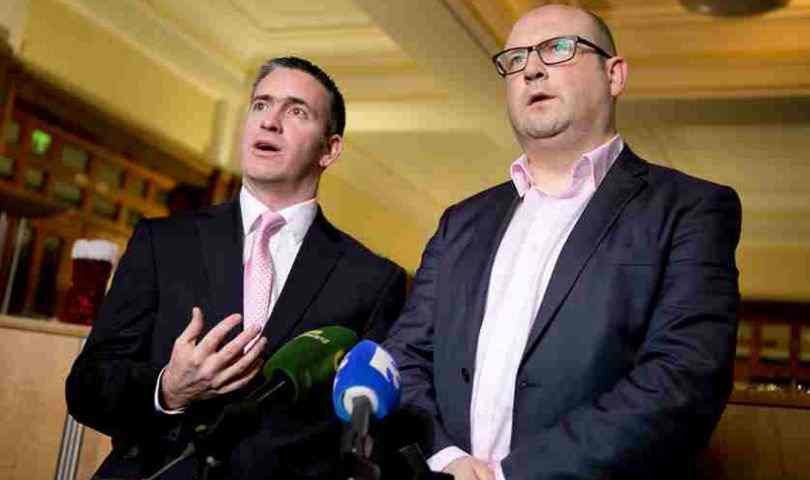The Minister for Business and Employment Ged Nash and the Minister for Skills, Research and Innovation Damien English have welcomed the introduction of the new rate of €9.15 for the National Minimum Wage. From Friday 1st of January, an estimated 124,000 workers will benefit from the increase of 50 cent in the minimum wage.
The change is the second increase to the National Minimum Wage introduced by the coalition government since coming into office in 2011. One of its first acts was to reverse a €1 per hour cut to the minimum wage introduced at the height of the financial crisis.
The inflation-busting 50 cent per hour increase, a 6% increase, followed the first report of the Low Pay Commission. No rationale was put forward by the commission, which in its report noted that consumer price inflation in the previous four years was 3.3%, while private sector earnings had increased by 3.3% in the same period. “In absolute terms, the minimum wage in Ireland is relatively high,” the LPC acknowledged.
The Low Pay Commission hike recommendation was opposed by three of the nine members. The trio, representing business interests, argued that the change of rate should be implemented no sooner than the second quarter of 2016.
They argued that that to implement the €9.15 an hour rate from 1 January 2016 would add unsustainable costs on retail and hospitality businesses at their worst period of the year. However, those concerns were ignored by Nash and his government colleagues.
USC Tinkering
The decision to approve the NMW increase drove much of finance minister Michael Noonan’s tinkering with the Universal Social Charge. Pre-Budget 2016, income under €12,000 per annum was exempt from USC. Once an individual moves above that level, they are taxed on the entire earnings. The appalling vista loomed of shop girls working 26 hours a week suddenly being moved into the tax net once the new NMW was implemented.
So Noonan raised the USC threshold to €13,000. For the same NMW-related reasons, Noonan cut the entry-level USC rates from 1.5% to 1.0% and from 3.5% to 3.0%, as well as raising the new 3.0% threshold to €18,668.
Minister Nash (pictured, right, with English) said: “Alongside USC and PRSI cuts announced in the budget, a single person working full-time on the minimum wage will see an annual boost to their income of €708 per annum or €14 a week. A married couple with a single income will be €911 better off per year, or have €18 euro a week extra in their pockets.”
At the moment, a person who earns €352 week pays no PRSI. If they earn a euro above that level they become liable for an annual PRSI payment of €733. From January 1, a PRSI taper relief commences at income of €352.01 per week and tapers out as income reaches €424 per week.
In tandem with the pay increases, employer PRSI thresholds are being adjusted from January 1 to ensure that the increased PRSI burden on minimum wage employers is ameliorated to a limited extent.
The pay rise that the government is claiming credit for is of course being paid for by employers. For example, take the case of an individual currently working a 39-hour week on the minimum wage, for a gross annual income of €17,542.
The NMW increase will raise their salary by €1,014 to €18,556. Due to the increased wage, their income tax deduction will increase by €203 and their PRSI by €160. Those deductions are offset by a €58 USC reduction, for a net gain to the Exchequer of €305.
The end result is a net gain for the employee of €708 while the employer is out of pocket for the €1,014, plus €86 paid to the Exchequer in employer’s PRSI. Effectively in this NMW-raising process, the employer is pilfered and the spoils are split two-thirds/one-third between the worker and taxman.
Employer groups have cautioned that the increase in the NMW will lead to fewer new jobs in 2016. Oonagh O’Hagan, managing director of the Meaghers pharmacy chain in Dublin, commented: “The extra employment cost means that retailers won’t bring on additional jobs. I know of several retailers who would have ramped up seasonal sales staff ahead of Christmas just didn’t take them on because they were budgeting for the extra payroll cost they face in the new year.”











